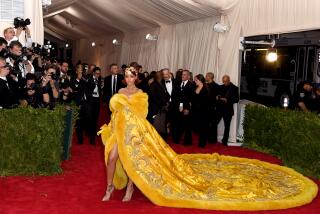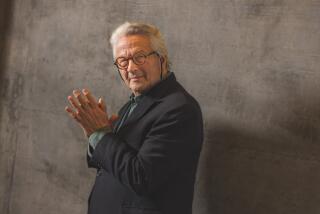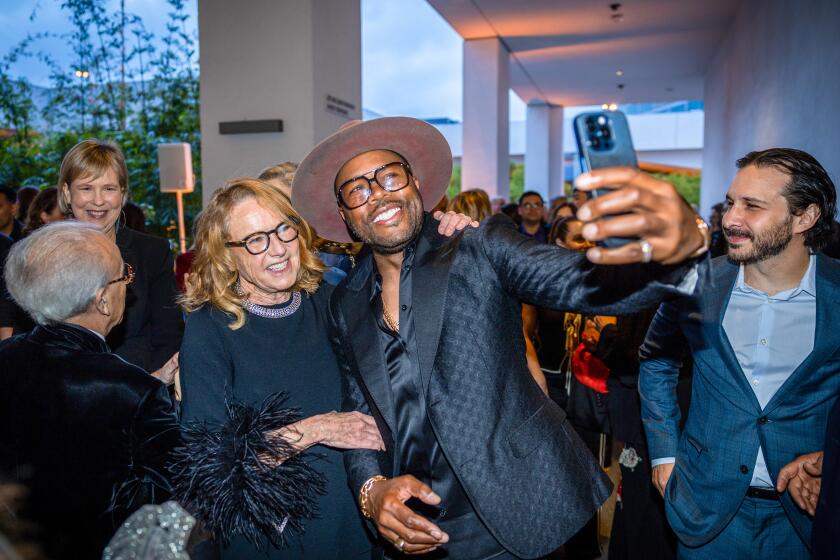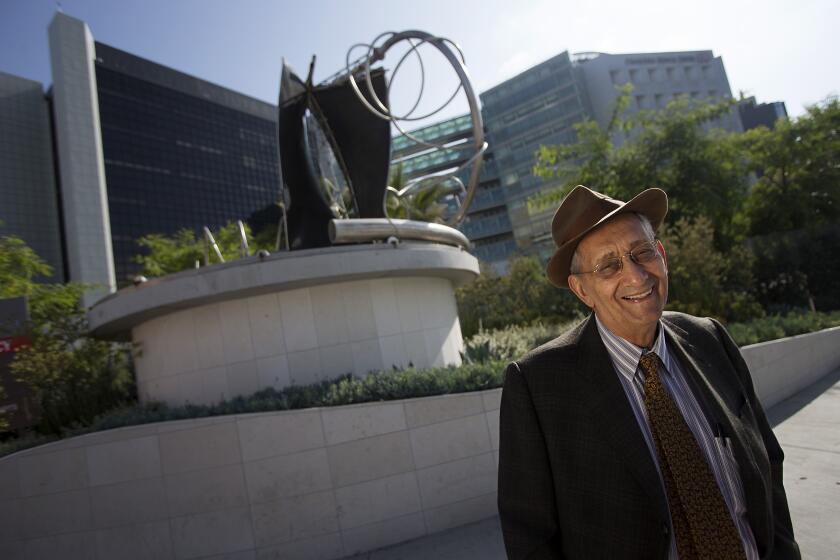Berg’s ‘Lulu’: Live, Complete and Problematic as Ever
Alban Berg’s “Lulu”--only two of whose three acts had been completed at the composer’s death in 1935--is peopled by characters hopelessly obsessed by, or helpless in the face of, sex: sex not in some contemporary director’s reinterpretation but in terms of what the composer, who was his own librettist, put into the opera at the outset.
Everyone in this opera is held captive by lust, or the lustfulness aroused in others; above all, Lulu herself, deadly catnip to every male, and at least one female, in sight.
She is the ultimate havoc-wreaking innocent, a character staggeringly difficult to portray, easily caricatured and a fearsome vocal challenge, although more than one soprano has gotten by on little more than cleavage and decibels.
The latest recorded “Lulu” (EMI 54622, 3 CDs) employs the now de rigueur three-act edition prepared by Friedrich Cerha for the Paris Opera, where it was staged in 1979 and which wraps up the action, in not too likely fashion, with Lulu’s death at the hands of Jack the Ripper.
Berg might have recognized in American soprano Patricia Wise the Lulu of his dreams. She has the youthful, pointed and wide-ranging voice to honor Berg’s score and, judging from photos accompanying EMI’s live recording of this recent production at the Theatre du Chatelet in Paris, looks the part of the tarnished, highly corrosive angel.
Wise and Berg also have in Jeffrey Tate a conductor alert not only to all the essential nastinesses of this melodramatic tale but, like Wise, keenly attuned to its elusive lyricism.
Having handsomely taken care of two of the usual make-or-break ingredients of any “Lulu,” there is, sadly, not nearly enough elsewhere to make this production preferable to Deutsche Grammophon’s pioneering three-act recording, a studio re-creation of the 1979 Paris Opera premiere of the Cerha edition, conducted by Pierre Boulez, with Teresa Stratas sweetly deadly as the titular anti-heroine and Franz Mazura a sympathetic Dr. Schon.
While Wolfgang Schone is rather a cipher as Dr. Schon, the performance that ultimately scuttles EMI’s effort is Brigitte Fassbander’s Countess Geschwitz, Lulu’s most faithful lover, who actually makes it to the final curtain in the three-act version, at which she, too, expires.
The over-the-top role is given the shove that sends it tumbling into caricature by Fassbander, with her sweatily expressive vocal lurches, shrieks and tragic-lustful sighs.
Compare that to the musical and always sung , passionate but dignified interpretation of the model, modern Geschwitz: the very same--but younger and, most meaningfully, studio-recorded--Fassbander in London Records’ two-act version, conducted by Christoph von Dohnanyi, with Anja Silja a dramatically sensitive if vocally squally Lulu.
The rest of the EMI cast is for the most part make-do rather than distinguished, and the live recording is not kind to Tate’s commanding interpretation or the playing of the Orchestre National de France, leaving too much orchestral detail to the imagination.
Admittedly less interesting today than it was when it appeared in 1968, the first stereo “Lulu”--two acts, of course, and taped live at the Berlin Opera--revives the moving Dr. Schon of Dietrich Fischer-Dieskau and Karl Bohm’s forceful conducting. Its fatal flaw (the inevitable incompleteness aside) is Evelyn Lear’s Lulu, so bitchily worldly, so completely in control that the character loses all contextual meaning.
Still, this is a “Lulu” that belongs in every collection, not for itself but for the other half of the inexpensive package (Deutsche Grammophon 435 705, 3 mid-priced CDs): the still unbeaten recording of Berg’s masterpiece, “Wozzeck,” sonically no less impressive than it was in 1965, skillfully conducted by Karl Bohm, with Fischer-Dieskau’s profoundly moving portrayal of the tragic oaf of a hero, Lear touching as his mistress, and a flawless supporting cast of grotesques.
More to Read
The biggest entertainment stories
Get our big stories about Hollywood, film, television, music, arts, culture and more right in your inbox as soon as they publish.
You may occasionally receive promotional content from the Los Angeles Times.






